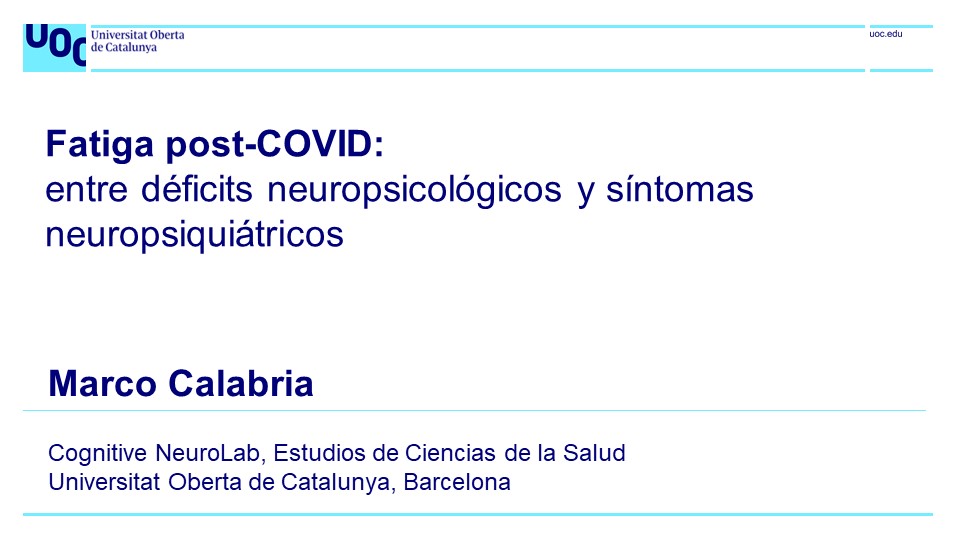During the last two years, in collaboration with the Hospital de la Santa Creu and Sant Pau in Barcelona, we investigated the impact of COVID-19 and persistent symptoms of COVID-19 on cognition and fatigue.
In the first study, we explore the frequency of impaired performance across cognitive domains in post-COVID patients with subjective complaints and whether the infection affected a single or of multiple domains of the cognition Results revealed pervasive impact on attention abilities, both as the singularly affected domain (19% of single-domain impairment) as well as coupled with decreased performance in executive functions, learning, and long-term memory. These salient attentional and associated executive deficits were largely unrelated to clinical factors such as hospitalization, disease duration, biomarkers, or affective measures. See full text of the article
In the second study, we investigated the nature of fatigue in its many forms of physical, mental, and psychosocial exhaustion as it is a common symptom of post COVID-19 condition. The study included 136 COVID-19 patients referred for neuropsychological evaluation due to cognitive complaints 8 months on average after SARS-CoV-2 infection. Results showed that reports of clinical significant fatigue were pervasive in our sample (82.3% of participants), with physical fatigue rated highest on average relative to the subscale maximum. Elevated levels of apathy, anxiety, and executive dysfunction in neuropsychiatric measures along with executive and attentional difficulties on cognitive tests were found to be consistently important predictors among different types of fatigue. See full text of the the article.
Press release
- Un estudio relaciona por primera vez la fatiga de la covid persistente con la ansiedad y la depresión [UOC]
- Fatigue in Long COVID patients linked to anxiety, depression, and apathy [News Medical]
- A study links Long COVID-related fatigue to anxiety and depression
- Interviews: Catalunya Ràdio [El Matí, Migdia], RAC1 Migdia
Fatiga post-COVID: entre déficits neuropsicológicos y síntomas neuropsiquiátricos [Talk in Spanish]

